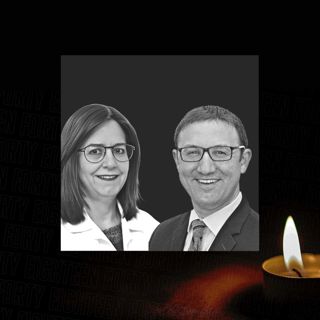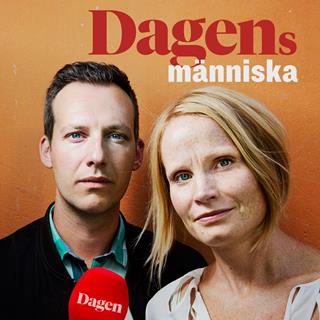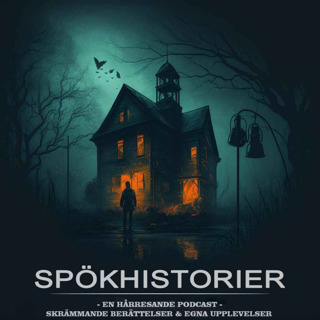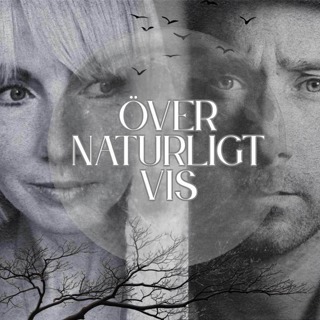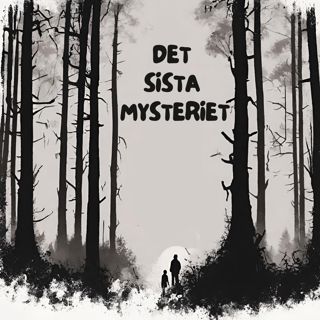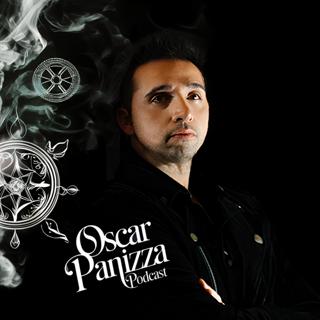![Is AI the New Printing Press? [AI 3/3]](https://cdn.podme.com/podcast-images/34FF4FA59E855FC22F8305BA18255C53_small.jpg)
Is AI the New Printing Press? [AI 3/3]
This series is sponsored by American Security Foundation.In this episode of the 18Forty Podcast—recorded at the 18Forty X ASFoundation AI Summit—we speak with Moshe Koppel, Malka Simkovich, and Tikvah Wiener about what the AI revolution will mean for the Jewish community.In this episode we discuss:How is AI going to change the dynamics, cadence, and rhythm of Jewish life? Should we panic about AI replacing the role of creative human work? What can Jewish and world history teach us about this moment? Tune in to hear a conversation about what AI can teach us about our own needs, especially the need for Shabbos. Interview begins at 14:26.Dr. Moshe Koppel is a computer scientist, Talmud scholar, and political activist. Moshe is a professor of computer science at Bar-Ilan University, and a prolific author of academic articles and books on Jewish thought, computer science, economics, political science, and other disciplines. He is the founding director of Kohelet, a conservative-libertarian think tank in Israel, and he advises members of the Knesset on legislative matters. Dr. Malka Simkovich is the director and editor-in-chief of the Jewish Publication Society and previously served as the Crown-Ryan Chair of Jewish Studies and Director of the Catholic-Jewish Studies program at Catholic Theological Union in Chicago. She earned a doctoral degree in Second Temple and Rabbinic Judaism from Brandeis University and a Master’s degree in Hebrew Bible from Harvard University. Tikvah Wiener is Founder and Co-Director of The Idea Institute, which, since 2014, has trained close to 2000 educators in project-based learning and innovative pedagogies. From 2018-2023, she was also Head of School of The Idea School, a Jewish, project-based learning high school in Tenafly, NJ.References:“Lazy Sunday - SNL Digital Short”Mechkarim Be-sifrut Ha-teshuvot by Yitzchak Ze'ev Kahane"In the Shadow of the Emperor: The Hatam Sofer’s Copyright Rulings" by David NimmerMeta-Halakhah: Logic, Intuition, and the Unfolding of Jewish Law by Moshe KoppelJudaism Straight Up by Moshe Koppel“Yiddishkeit Without Ideology: A Letter To My Son” by Moshe Koppel@ShabbosReadsFor more18Forty:NEWSLETTER: 18forty.org/joinCALL: (212) 582-1840EMAIL: info@18forty.orgWEBSITE: 18forty.orgIG: @18fortyX: @18_fortyWhatsApp: join hereBecome a supporter of this podcast: https://www.spreaker.com/podcast/18forty-podcast--4344730/support.
11 Nov 1h 34min
![Julia Senkfor & Cameron Berg: Does AI Have an Antisemitism Problem? [AI 2/3]](https://cdn.podme.com/podcast-images/96EBFFDD1AEDC698014F7556471853B3_small.jpg)
Julia Senkfor & Cameron Berg: Does AI Have an Antisemitism Problem? [AI 2/3]
This series is sponsored by American Security Foundation.In this episode of the 18Forty Podcast—recorded at the 18Forty X ASFoundation AI Summit—we speak with ASF’s Julia Senkfor and AI researcher Cameron Berg about the relationship between artificial intelligence and antisemitism. In this episode we discuss: Why do large language models have an antisemitism problem? Is antisemitism inextricably embedded in Western culture? What can we do to reduce antisemitic bias in AI?Tune in for a conversation about the Jewish lives we want to create in a world that often seeks to define us negatively.Interview begins at 15:33.Julia Senkfor manages research and operations for American Security Fund. Prior to ASF, she worked as the lead researcher and subject matter expert on Iran (including Iran’s nuclear program), Lebanon, Hezbollah, Yemen, and the Houthis at the American Israel Political Action Committee (AIPAC). She earned her BA in International Affairs and minors in Middle Eastern Studies and Legal Studies from Washington University in St. Louis.Cameron Berg is an AI researcher working at the intersection of cognitive science and machine intelligence. A Phi Beta Kappa graduate of Yale and former Meta AI Resident, he builds systems that enhance—rather than replace—human capabilities. His work focuses on alignment, cognitive science, and the emerging science of AI consciousness, with tools and research used across Fortune 500s, startups, and public institutions.References:Inception (2010)The Muppets Take Manhattan (1984)Anti-Judaism by David NirenbergFor more 18Forty:NEWSLETTER: 18forty.org/joinCALL: (212) 582-1840EMAIL: info@18forty.orgWEBSITE: 18forty.orgIG: @18fortyX: @18_fortyWhatsApp: join hereBecome a supporter of this podcast: https://www.spreaker.com/podcast/18forty-podcast--4344730/support.
4 Nov 1h 7min
![Steven Gotlib & Eli Rubin: What Does It Mean To Be Human? [AI 1/3]](https://cdn.podme.com/podcast-images/F6D729A670E0A23D47A899503F796F62_small.jpg)
Steven Gotlib & Eli Rubin: What Does It Mean To Be Human? [AI 1/3]
This series is sponsored by American Security Foundation.In this episode of the 18Forty Podcast—recorded at the 18Forty X ASFoundation AI Summit—we speak with Rabbi Eli Rubin and Rabbi Steven Gotlib about what differentiates human intelligence from artificial intelligence.In this episode we discuss:What does AI teach us about what it means to be human? What is the soul, and how do we interact with it? Should we be frightened or encouraged by the development of AI? Tune in to hear a conversation about the role of language in our humanity. Interview begins at 16:49.Steven Gotlib is Associate Rabbi at Mekor Habracha/Center City Synagogue and Director of the Center City Beit Midrash in Philadelphia. Steven received rabbinic ordination from the Rabbi Isaac Elchanan Theological Seminary, certificates in Mental Health Counseling and Spiritual Entrepreneurship, and a BA in Communication and Jewish Studies from Rutgers University.Eli Rubin, a contributing editor at Chabad.org, is the author of Kabbalah and the Rupture of Modernity: An Existential History of Chabad Hasidism and a co-author of Social Vision: The Lubavitcher Rebbe’s Transformative Paradigm for the World. He studied Chassidic literature and Jewish Law at the Rabbinical College of America and at yeshivot in the UK, the US and Australia, and received his PhD from the Department of Hebrew and Jewish Studies, University College London.References:“Basketball: The One And Only”Genesis 7;23Rashi on Genesis 7:23“Remembering my chavruta: Rabbi Moshe Hauer, z”l” By Rabbi Rick Jacobs“18Forty: Exploring Big Questions (An Introduction)”18Forty Podcast: “The Cost of Jewish Education”18Forty Podcast: “Steven Gotlib: Some Rabbi Grapples with His Faith” 18Forty Podcast: “Eli Rubin: How Do Mysticism and Social Action Intersect”18Forty Podcast: “Eli Rubin: Is the Rebbe the Messiah?”Torah Ohr by Shneur Zalman of LiadiTanya by Shneur Zalman of LiadiNefesh HaChayim by Chaim of VolozhinGuide for the Perplexed by MaimonidesHalakhic Man by Rabbi Joseph B. SoloveitchikThe Conscious Mind by David J. Chalmers“Adam, The Speaking Creature: On Humanity and Language in the Era of AI” by Eli Rubin“Toward a Jewish Theology of Consciousness” by Steven GotlibLudwig Wittgenstein: Philosophy in the Age of Airplanes by Anthony GottliebFor more 18Forty:NEWSLETTER: 18forty.org/joinCALL: (212) 582-1840EMAIL: info@18forty.orgWEBSITE: 18forty.orgIG: @18fortyX: @18_fortyWhatsApp: join hereBecome a supporter of this podcast: https://www.spreaker.com/podcast/18forty-podcast--4344730/support.
28 Okt 1h 8min
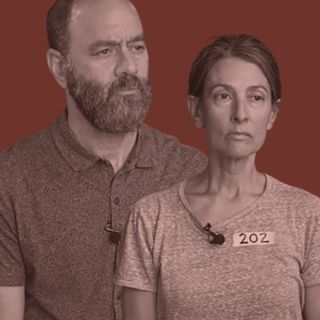
Rachel Goldberg-Polin and Jon Polin: How Torah Gives Us Faith and Hope
This episode is brought to you by Simchat Torah Challenge, a Jewish communal project inspiring tens of thousands of Jews of all backgrounds to read the weekly parsha. The weekly English-language email newsletter and website bring Torah and insights from trusted sources. Join for free at SimchatTorahChallenge.orgIn this special Simchas Torah episode of the 18Forty Podcast, we speak with Rachel Goldberg-Polin and Jon Polin—parents of murdered hostage Hersh Goldberg-Polin, Hashem yikkom damo—about their relationship to Torah. For two years, we’ve been struggling with the paradox of how Simchas Torah has become eternally intertwined with October 7. So, at Koren’s celebration of Rabbi Sacks’s Humash, we could think of no two better people to talk to. In this episode we discuss:How can we find redemption specifically within our exile? How can we move on when we’ve been permanently broken? How can we work to live our lives through the lens of Torah? Tune in to hear a conversation about how Torah gives us strength and hope in even the darkest times. Interview was held on Sept. 8 and begins at 18:26. References:18Forty Podcast: “Chaim Saiman: Is Talmud the Jewish Constitution?”“The Inverted Halakhah of Simhat Torah” by Chaim SaimanParshat Beha'alotchaEzekiel 37Genesis 32:27The Koren Shalem HumashFor more 18Forty:NEWSLETTER: 18forty.org/joinCALL: (212) 582-1840EMAIL: info@18forty.orgWEBSITE: 18forty.orgIG: @18fortyX: @18_fortyWhatsApp: join hereBecome a supporter of this podcast: https://www.spreaker.com/podcast/18forty-podcast--4344730/support.
12 Okt 1h 9min
![Moshe Koppel: Artificial Intelligence and Torah [Prayer Re-Release]](https://cdn.podme.com/podcast-images/A3F831B7AA46BCAE8946D453A8AE02E2_small.jpg)
Moshe Koppel: Artificial Intelligence and Torah [Prayer Re-Release]
As a hint at our next new series, we want to share with you our 2023 episode with Moshe Koppel—a computer scientist and Talmud scholar—about Torah and its intersection with artificial intelligence.In a world in which technology puts vast libraries of Torah at our fingertips, we are tasked with thinking more deeply about what essentially human abilities we bring to the enterprise of Torah and tefillah. In this episode we discuss:What computer-based innovations are on the horizon in the realm of Torah study?Will AI ever be able to reliably answer our halachic questions?Will advances in technology drastically change the experience of Shabbos observance?Tune in to hear a conversation about how AI has the potential to make our Jewish lives richer—if we use it wisely.Interview begins at 18:21.Dr. Moshe Koppel is a computer scientist, Talmud scholar, and political activist. Moshe is a professor of computer science at Bar-Ilan University, and a prolific author of academic articles and books on Jewish thought, computer science, economics, political science, and other disciplines. He is the founding director of Kohelet, a conservative-libertarian think tank in Israel, and he advises members of the Knesset on legislative matters. Dr. Koppel is the author of three sharply thought books on Jewish thought and previously joined 18Forty to talk about Halacha as Language.References:“Funes the Memorious” by Jorge Luis BorgesThe Mind of a Mnemonist by A.R. LuriaSurfaces and Essences: Analogy as the Fuel and Fire of Thinking by Douglas R. Hofstadter & Emmanuel SanderGödel, Escher, Bach: An Eternal Golden Braid by Douglas R. HofstadterMeta-Halakhah: Logic, Intuition, and the Unfolding of Jewish Law by Moshe Koppel2001: A Space OdysseyDICTA: Analytical tools for Hebrew texts“Digital Discourse and the Democratization of Jewish Learning” by Zev EleffTzidkat HaTzadik: 211 by Tzadok HaKohen of LublinBecome a supporter of this podcast: https://www.spreaker.com/podcast/18forty-podcast--4344730/support.
6 Okt 1h 14min
![Moshe Benovitz: Why Religious Change Doesn't Always Last [Teshuva 6/6]](https://cdn.podme.com/podcast-images/DBC34A550690E5536EB7B3700A00ED95_small.jpg)
Moshe Benovitz: Why Religious Change Doesn't Always Last [Teshuva 6/6]
This series is sponsored by Mira and Daniel Stokar.In this episode of the 18Forty Podcast, recorded live at Stern College, we speak with Rabbi Moshe Benovitz, director of NCSY Kollel, about what makes religious change real and sustainable.In this episode we discuss:—What is the difference between behavior modification and personality development?—How does one translate yeshiva skills to a life of kedusha? —What is the value of being less emotionally reactive to criticism?Tune in to hear a conversation about how we might do teshuva that lasts throughout the year and beyond.Interview begins at 16:00.Rabbi Moshe Benovitz has been the director of NCSY Kollel for over two decades. David Bashevkin considers him the “Lorne Michaels” of Jewish education. References:Resisei Layla 50Mishnah Kelim 17Saturday Night LiveMishneh Torah, RepentanceFor more 18Forty:NEWSLETTER: 18forty.org/joinCALL: (212) 582-1840EMAIL: info@18forty.orgWEBSITE: 18forty.orgIG: @18fortyX: @18_fortyWhatsApp: join hereBecome a supporter of this podcast: https://www.spreaker.com/podcast/18forty-podcast--4344730/support.
29 Sep 1h 26min
![Naftuli Moster: Leaving Haredi Education Activism [Teshuva 5/6]](https://cdn.podme.com/podcast-images/853BB536A3B6A8AE9F0FCD9A78154CB0_small.jpg)
Naftuli Moster: Leaving Haredi Education Activism [Teshuva 5/6]
This series is sponsored by Mira and Daniel Stokar.In this episode of the 18Forty Podcast, we speak with Naftuli Moster, a former activist for major changes in Hasidic education, about how and why he changed his understanding of the values imparted by Judaism.In this episode we discuss:Why did Naftuli stop campaigning for fundamental reform in Hasidic education?Why are Jews often drawn to movements that can be counterproductive to their interests? How did October 7 make Naftuli rethink his relationship with the Jewish world? Tune in to hear a conversation about finding healthy communities in times when we feel lost. Interview begins at 25:09.Naftuli Moster is the founder and CEO of Shtetl, a non-profit media outlet serving as a free press for the Haredi community. He formerly worked with YAFFED, an organization that pushes for reform in Haredi and Hasidic education.References:“‘Why I left Hasidic education activism’ | Naftuli Moster”Tosafot on Pesachim“The Words of the Master and the Life of the Student” by Shalom CarmyMan's Search for Meaning by Viktor E. FranklNight by Elie WieselFor more 18Forty:NEWSLETTER: 18forty.org/joinCALL: (212) 582-1840EMAIL: info@18forty.orgWEBSITE: 18forty.orgIG: @18fortyX: @18_fortyWhatsApp: join hereBecome a supporter of this podcast: https://www.spreaker.com/podcast/18forty-podcast--4344730/support.
21 Sep 1h 36min
![Gayle Kirschenbaum: Learning to Forgive My Mother [Teshuva 4/6]](https://cdn.podme.com/podcast-images/0C5B79830F53B4727CFC1226C6E73EED_small.jpg)
Gayle Kirschenbaum: Learning to Forgive My Mother [Teshuva 4/6]
This series is sponsored by Mira and Daniel Stokar.In this episode of the 18Forty Podcast, we speak with Gayle Kirschenbaum—author of Bullied to Besties: A Daughter’s Journey to Forgiveness—about how she repaired her fraught relationship with her mother.At the end of the podcast, we hear from her mother, Millie, herself, now over 101 years old. In this episode we discuss: What does a “forgiveness coach” teach her students? How can we repair relationships across generations? What does it take to try to understand the full humanity of our parents? Tune in to hear a conversation about healing, forgiveness, and teshuva through love. Interview begins at 14:29.Gayle Kirschenbaum is an Emmy-winning TV producer, writer, photographer, coach, and speaker. She was invited to give a TED Talk called "No More Drama With Mama," about forgiveness and transforming difficult relationships into healthy ones. References:Top 5 by David BashevkinBullied to Besties: A Daughter’s Journey to Forgiveness by Gayle Kirschenbaum“No More Drama With Mama” by Gayle Kirschenbaum“Cut! She's Chewing the Scenery; A Shih Tzu and Her Stage Mother Strive for Stardom”The Godfather Part IIIMy NoseThe Nanny You Can Heal Your Life by Louise HayFor more 18Forty:NEWSLETTER: 18forty.org/joinCALL: (212) 582-1840EMAIL: info@18forty.orgWEBSITE: 18forty.orgIG: @18fortyX: @18_fortyWhatsApp: join hereBecome a supporter of this podcast: https://www.spreaker.com/podcast/18forty-podcast--4344730/support.
16 Sep 1h 35min
